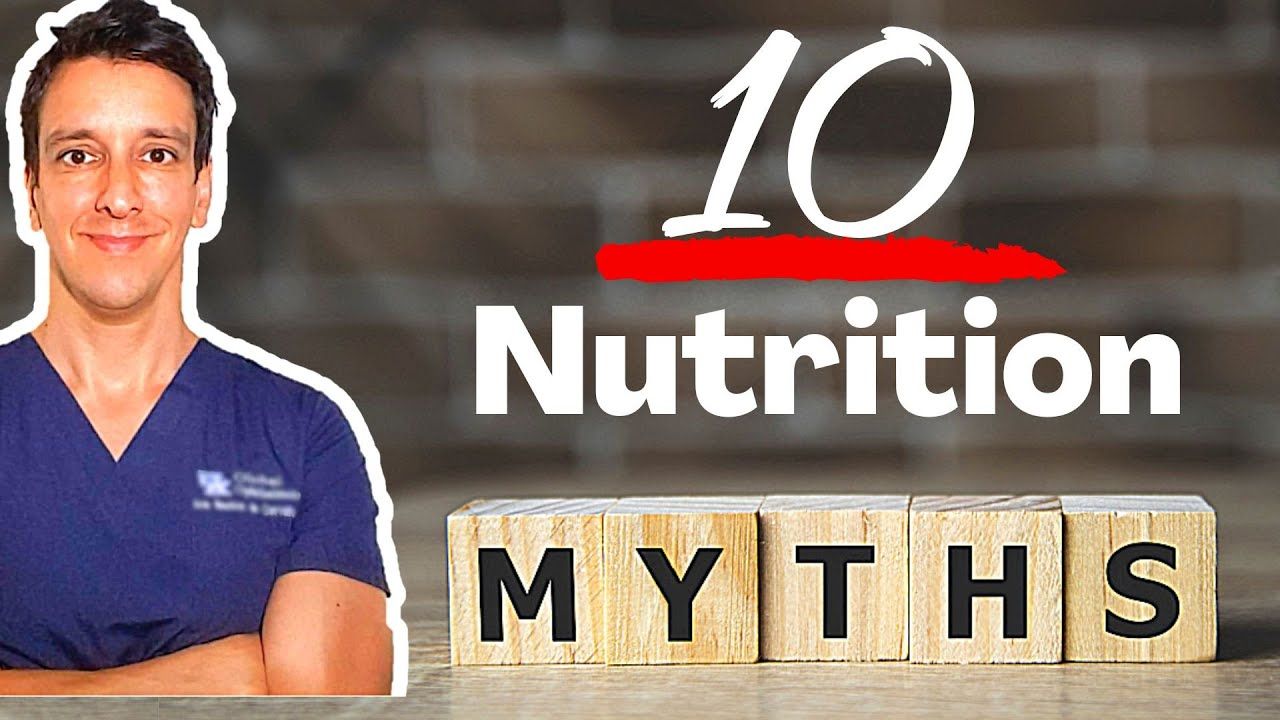
When it comes to nutrition, there is a lot of misinformation out there. From fad diets to conflicting advice, it can be hard to separate fact from fiction. In this article, we will debunk 10 common nutrition myths that you may have heard before.
Myth #1: Carbs are bad for you
Carbohydrates often get a bad rap, but the truth is that they are an essential part of a healthy diet. Carbs are your body’s main source of energy, and cutting them out completely can leave you feeling tired and sluggish. Instead of avoiding carbs, focus on choosing whole grains, fruits, and vegetables to fuel your body.
Myth #2: Eating fat makes you fat
Contrary to popular belief, eating fat does not necessarily lead to weight gain. In fact, healthy fats, such as those found in avocados, nuts, and olive oil, are an important part of a balanced diet. These fats can help keep you feeling full and satisfied, which can prevent overeating.
Myth #3: You need to eat every 2-3 hours
While eating small, frequent meals throughout the day may work for some people, it is not necessary for everyone. The most important thing is to listen to your body’s hunger cues and eat when you are truly hungry. Some people may do better with larger, less frequent meals, while others may prefer smaller, more frequent snacks.
Myth #4: Protein supplements are necessary for muscle growth
While protein is important for muscle growth and repair, most people can get an adequate amount from their diet alone. Protein supplements can be convenient, but they are not necessary for most people, unless you have specific dietary restrictions or have increased protein needs due to intense physical activity.
Myth #5: You should avoid fruit because of the sugar content
While fruit does contain natural sugars, it also provides important vitamins, minerals, and fiber that are beneficial for your health. The sugar in fruit is different from added sugars found in processed foods, and eating whole fruits is not likely to lead to weight gain or other health issues. Instead of avoiding fruit, focus on incorporating a variety of fruits into your diet for optimal health.
Myth #6: Detox diets are an effective way to cleanse your body
Detox diets often promise to rid your body of toxins and improve your health, but the reality is that your body is already equipped with its own detoxification system. Your liver, kidneys, and digestive system work together to eliminate waste and toxins from your body, and following a restrictive detox diet is unlikely to provide any additional benefits.
Myth #7: Eating late at night will make you gain weight
While it is true that eating late at night can lead to weight gain if you consume more calories than you burn, the timing of your meals and snacks is not the most important factor in weight management. What matters most is the overall quality and quantity of the food you eat, not the time of day that you eat it.
Myth #8: Low-fat products are always the healthiest option
Many low-fat products are highly processed and contain added sugars and other unhealthy ingredients to make up for the lack of fat. In some cases, choosing full-fat versions of foods may be a better option, as they can be more satisfying and nutritious. Be sure to read labels carefully and choose products with minimal added sugars and other additives.
Myth #9: Drinking coffee is bad for you
Coffee has been unfairly demonized in the past, but the truth is that moderate coffee consumption can have some health benefits. Coffee is high in antioxidants and has been linked to a reduced risk of certain diseases, such as type 2 diabetes and Parkinson’s disease. Just be mindful of adding too much sugar or cream to your coffee, as these can add unnecessary calories to your diet.
Myth #10: Skipping meals is a good way to lose weight
Skipping meals may seem like an easy way to cut calories, but it can actually backfire in the long run. When you skip meals, you are more likely to overeat later in the day, leading to weight gain instead of weight loss. It is important to fuel your body with regular, balanced meals and snacks to keep your metabolism running smoothly and prevent excessive hunger.
By debunking these common nutrition myths, you can make more informed decisions about your diet and health. Remember to listen to your body, focus on whole, unprocessed foods, and consult with a registered dietitian or healthcare professional for personalized nutrition advice.